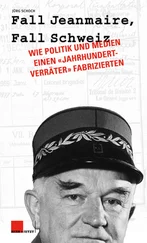They hitched the Nickelmans’ wagon to theirs with a length of thick nylon rope and all the Nickelmans quickly crammed back inside except for the very old man and one of the boys, who rode with Quig to show the way. They hadn’t seen any houses back in that direction as they’d passed and they didn’t see any now, just the dense, weedy brush and knotty vines that were a pox upon the beleaguered trees with the ever-lengthening season of high heat. At an otherwise nondescript bend in the road the old man told Quig to stop and stepped out. He removed some large fern fronds and pine branches from the weeds, revealing the start of some rutted tracks through the undergrowth. He motioned for them to take them, which they did, and once the Nickelmans’ wagon trailed past the entrance, he replaced the camouflage and then ran up in front to guide them in, going maybe another fifty meters through the vegetation until the tracks opened onto a very large clearing, where there was an extensive vegetable garden and a mini-grove of fruit trees and a wire pen containing several goats and a chicken coop with chickens loitering inside and out. A stout black and brown rottweiler wandered out to greet them, wagging its tail. The dog followed closely alongside Mr. Nickelman, and Fan noticed the man had a very small brass whistle on a lanyard around his neck. In the clearing there was a pickup truck set on concrete blocks and a washing machine and what looked to be the head of a working water well, all of it looking rustic but still quite orderly and neat. There was also a tiny guard post — like outhouse at the far end of the clearing, from which, when the breeze was right, issued an odor so vigorous it seemed alive. But there was no house.
The Nickelmans streamed out of their wagon, and without instruction, the old man and the teenage boys unhitched the vehicles and rolled theirs beside the pickup truck. They propped the hood to start working on it, while Mr. Nickelman ushered Quig and Loreen and Fan to one of the picnic tables to have a drink and snack before going on their way. Soon enough the engine was running again and everyone cheered. He nodded to his wife, and she and a few of the older girls walked to the edge of the clearing and then disappeared through an arched passage in the dense, weedy bower of the forest. Loreen asked Mr. Nickelman where they went and he said to prepare a small supper, which didn’t quite answer the question. Loreen then asked what they did for trade and he said they were entertainers; in fact, they were returning from an overnight gig up near Niagara Falls where they put on shows at a big regional fair. They — now really just the kids, each of whom they had trained from the time they were walking — were acrobats, doing a cheer routine with synchronized dance moves and power lifts, throws, and flips. They ended their performances with a medley of old-fashioned country songs. Counties people all over loved their show, and they were paid well, considering, though in the winter there were hardly any fairs and festivals, and they made just enough to get them by until spring, when the bookings started coming in again. They were flush now, he said, not with pride but a wistful relief, the disclosure itself a clear endorsement of the trustworthy character of his guests.
Fan wouldn’t have understood this, of course, but she did notice that Quig and particularly Loreen visibly relaxed, and when Mrs. Nickelman and one of her older daughters brought out trays of drinks and food, they all partook with gusto, the old man and children sitting in the grass with their plates. For it was wonderful food, maybe miraculous, for being served out here, the sort of vibrant, wholesome fare you only saw on the evening programs when Charter characters dined and argued with one another amid a fully laden table. None of it was anything elaborate but that was its simple, delectable beauty: thick chunks of ripened tomato with little knobs of homemade goat cheese curds; scrambled eggs and summer squash sprinkled with herbs; fried corncakes; sliced fresh peaches in cream; and a cool sarsaparilla and mint tea to wash it all down. Of course, at the Smokes they ate food mostly out of cans and pouches, or dried items such as instant noodles and meat jerkies, everything to be warmed up and rarely ever fresh, as that’s what people can easily bring in trade. The Nickelmans were cooks, and also vegetarians, which seemed a crazy way to live when you couldn’t depend on regular supplies of anything. They were disciplined, one of the children proudly told Fan, for even when they were down to just a few mouthfuls of beans each this past winter, they still never thought about touching their goats or chickens, which would go against their beliefs.
Fan didn’t ask what those beliefs were, as she would have no real idea what the cost of transgressing any specific doctrine would be, religious or philosophical, as we in B-Mor pretty much practice none; other than an undying habit of pragmatic attention and action, there is no overarching system we subscribe to anymore, no devotion to a deity or origin story, no antique Eastern or Western assertions of goodness and badness to guide us. We abide by directorate regulations, yes, but are mostly ruled by one another as to what is optimal, which is debatable but in fact no more so in B-Mor than anywhere else, even as amoral as we may be considered by others. At least we are not wholly ruled by the pursuit of wealth like Charters, or by the specter of ill chance like open counties people, which endows us, we will say, with a certain equable stance that does not tip us either too far forward or back.
Which is how the Nickelmans seemed to Fan, and as well to Loreen and Quig, who marveled not just at the tasty food but at the oddly prosperous calm of the family, their easy generosity that was at once so thorough and modestly offered. Now was now and it was plenty. Toward the end of the meal the children huddled and pronounced that they wished to give a mini-performance of their show, and as Quig and Mr. Nickelman shared puffs from a water pipe and his wife and Loreen sipped some moonshine, the kids ran through a couple of their gymnastic cheer routines, the smaller ones climbing on their bigger siblings and leaping off into the arms of others; they even got Fan to get up on their shoulders and stand with her hands held high and then freely fall backward until she was caught and then rolled deftly onto her feet. They taught her a few steps that she picked up quickly, and within a few run-throughs, she was in sync with their slides and hops and twirls. Aside from her bloodlines, she could have been one of them, her control over her body total and natural, such that some of the Nickelmans, including the parents, couldn’t help but wide-eye one another. For you could easily imagine her integration into the group, an unlikely addition that would give their show a most memorable punctuation of shape and color: the Bounding Nickelmans, now featuring Fan the Fearless!
After the demonstration, the plates and cups were cleared (they used real ones rather than throwaways), and Quig commented on their need to be moving on, which drew a chorus of moans and pleas from the children. But he didn’t sound terribly adamant, and then Loreen, despite the liquor, was suffering from her toothache again, and Mrs. Nickelman offered to make a poultice that she could lodge against her gum and tooth, which Quig had offered many times to pull but that Loreen had resisted, as she didn’t want to relinquish any more of the front ones that were left. This was when they received a tour of the Nickelmans’ living quarters, which the visitors assumed was set secretly on the far side of the passage leading through the dense mountain of kudzu and other vining weeds that had overtaken the entire region.
But once they stepped beneath the bower, the passageway veered sharply left, and right, and then slightly downward for a short stretch, the light diminishing and the temperature dropping with each turn such that it felt they were venturing into a cave. But they were not going below ground. The footing of the path was shored up by planking but it was hard to see much and Loreen was starting to make the whistly noise from high in her throat that came out whenever she got a little twitchy. Fan herself was wondering where this would lead but she kept her focus on Quig, who didn’t seem at all worried or perturbed, just grunting assents as the nerdy, enthused Mr. Nickelman recounted how he, too, had been raised in a Charter village, though his family had been forced to leave when he was still a boy; his father had died unexpectedly of a heart attack, but because of an accidental lapse in his paying life insurance premiums, his mother couldn’t support the family at the necessary levels with her own job. They had come out to the counties and been taken in by a community that had a famous theatrical acrobatic troupe among its members, who saw his potential and trained him, and here he was all these years later, with a successful show composed of his own children and a wife (born of that famed troupe) he respected and loved, living in a home they’d constructed themselves, or more like cultivated, for it was evident now that the Nickelmans lived beneath a single tree.
Читать дальше












